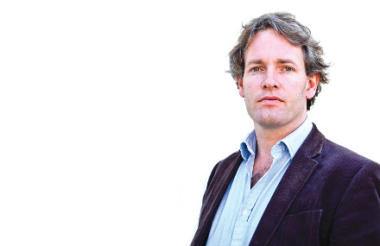Charity leaders are not always the best leaders as they normally chose the role to fix a social problem and not to apply their management skills, former charity chief executive Danny Kruger said.
Kruger is a senior fellow at the Legatum Institute, and is the founder of charities Only Connect and the West London Zone. Prior to his time in the sector he was chief speechwriter to David Cameron.
His essay essay Reasons to be cheerful: The new political climate means anything is possible and formed part of NPC’s collection of essays Flipping the narrative: Essays on transformation from the sector’s boldest voices.
Kruger said the sector needs to create greater capacity in charities to deliver services. He said there are three major changes that charities themselves can tackle, with the help of donors and commissioners.
He called on the sector to “sympathise with your charity boss, who is often only in the role because he or she felt an urgent need to ‘do something’ about a social problem—people rarely join a charity because they want to apply their skills as managers”.
He added: “This is a polite way of saying that charity leaders are not always the best leaders; I speak personally, having been one.”
He went on to say that the “personal failings of the boss are compounded by those of everyone else”, mentioning “the chaotic beneficiaries, the eccentric donors, and the flaky staff who think a good day’s work consists of some earnest conversations interspersed with tea breaks, and perhaps one difficult interaction with a service user that justifies an early train home and a sickie tomorrow”.
Kruger said that although “some charities are content to play a niche role in their communities; for them the offer of ‘capacity building’ is a confusing distraction”, many charities would like to be “bigger and more mainstream, less of a poor relation at the feast of civic life and more the chef, host and toastmaster”.
He said: “If charities want to play the full role they could, everyone who leads, funds and works for them needs to get with the programme. No longer should it be OK for good intentions to obviate good processes, or staff (no matter how kind-hearted and ‘authentic’) to adapt the service to their own convenience.
“Organisations working in the front line of social need must work deliberately to stop the chaos of their client group, and the eccentricity of their donor base, seeping into their operations.”
Kruger said the second and third changes need are a “new breed of infrastructure organisation to help charities collaborate effectively, commissioners and donors to achieve a sustained and strategic impact, and beneficiaries to navigate the help and opportunities that the system offers”, and “philosophical alignment”.
Charities ‘thrive on tension’
Kruger said that “all times are tough for the social sector; and so they should be. Charities don’t have a right to exist and we thrive on the tension that comes from living on the edge (I can say this now I’m no longer in daily charge of a charity)”.
But, he said: “Maybe because it’s a glorious summer day as I write this but I am hugely excited about the potential for our sector at this time.”
|
Civil Society Media is hosting its Charity People & Culture Conference on 20 September 2017. For more information, and to book, click here. |
Related articles












